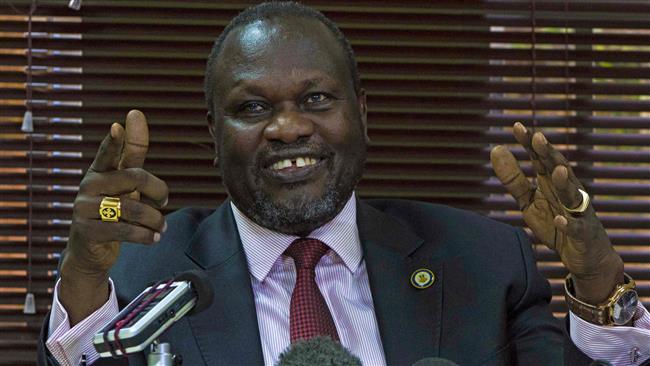 The Finland Ambassador to Nigeria, Amb. Pirjo Suomela-Chowdhury
The Finland Ambassador to Nigeria, Amb. Pirjo Suomela-Chowdhury
On Monday, in Abuja, the Diamond Crest for Youth Education Foundation, in partnership with the Federal Ministry of Youth development and Sports of Nigeria, and Rotary district 9125, organized the Third All-Stakeholders’ Strategy Conference on Education/Youth and National Development. The theme of the conference was ‘Education and Youth Empowerment for Peace, Security & Sustainable Development in Nigeria: Problems, Prospects & Pillars’.
Ambassador Pirjo Suomela-Chowdhury of Finland spoke at the event about the importance of education in building a peaceful society, reflecting on the Finnish experience of providing high quality education and equal opportunities to all citizens. Below is her speech at the event in full:
Excellencies, Ladies and Gentlemen,
Thank you for inviting me to this event. Truth is I am fascinated to be here. It is a great subject that we are discussing today: education, youth and national development. My predecessor took part in the same event three years ago, and I am delighted to be following in her footsteps. I am of course also delighted to be able to add a female voice on the stage.
Diamond-Crest for Youth Education Foundation is an organization with wonderful aims and principles. It should be commended for bringing us here. I am certainly honoured to have the opportunity to speak to you today.
When I was originally asked about the focus of my speech in this conference, inevitably I had to turn to the Finnish experience – because that is what I know something about. While today’s discussion is about how to promote positive developments in Nigeria, I believe the best I can offer is to talk about how things have been done in my country. What relevance that experience might or might not hold for the Nigerian context, will be for you to judge.
Finland and Nigeria are no doubt in many ways very different kind of societies. Challenges can also be quite different – and they may call for different kind of solutions. However, I personally firmly believe that at the same time, many things are in fact universal, and that there is much relevance and merit in comparing notes.
But before Finland, a few words on youth and education more generally:
There is a lot of talk these days about the growing young population in Africa – some call it the ‘youth bulge’. Youth are an increasingly important aspect of development and of peace and stability in Nigeria, too. That ‘bulge’ comes with opportunities and challenges.
I think we need to first recognize that it is in the nature of the incoming generation everywhere in the world, to question, to test limits, and sometimes to rebel. For a society to go forward and to develop, that ‘counterforce’ to older generations and to the establishment is necessary, and can actually be a very fruitful thing.
But if young people are not able to benefit from the basic preconditions of a decent and satisfying life, it can also become a very destructive force. That can happen if young people do not have the opportunity to educate themselves, if there are no jobs, or if they do not have the skills to take up the jobs available, if they feel powerless or excluded, instead of being in charge of their lives. ‘Idle males’ is a concept I consider universally very relevant from the point of view of peace and stability. Young men without anything to do, without prospects in life, almost always means trouble. I am not sure of all the reasons – but that is the way it seems to go over again, in different parts of the world.
And of course, for boys and girls, women and men, it is a tragedy for the individual, as well as for society, to miss out on their full potential and talent. While idle females may be a little harder to find, girls and women are no strangers – quite the contrary, unfortunately – to experiencing lack of opportunity. They might become mothers when they should still be children, or they might suffer from violence. And the talent that they hold, and that does not get to flourish, that is a tragedy for the world.
The role of education then? We all know it is enormous, but still it needs to be repeated. Education – formal and informal – is a very fundamental aspect of the fabric of any society. It allows a country to benefit from the talent of its citizens. It enables people to make good choices in life, it reduces prejudices and hatred, and increases knowledge and understanding. It promotes positive social and economic development, and it allows individuals to have satisfying lives, with hope and prospects, and a feeling of being in control. It makes individuals and society more resourceful and resilient. It makes it much more difficult to lure people into destructive activities.
Ladies and gentlemen, a few words on education and the Finnish experience:
I have gone through the Finnish education system myself, and have seen around me how it works for others. Over the years we have kept developing the system, and it seems that this hard work has been taking us to the right direction. It is indeed wonderful to be able to have the confidence that that school system really gives everybody an equal start in life.
That takes me to the first point I always want to mention when asked about the success factors of the Finnish education system:
- Equality of opportunity: It is a public system, paid for by tax payers’ money. It does not matter where you go to school. Good quality schools are available for all, everywhere in the country. You will receive the same standard of education, and all schools will provide you with the same opportunities for further education. Education is free from pre-school to university.
- Second point – teachers: They are highly-qualified, capable and motivated. Teachers at all levels are required to have a university degree, and teacher training is taken very seriously. Teachers are respected professionals who have strong autonomy in their work. The teaching profession is actually very popular in Finland. There is serious competition amongst the best of students to enter teacher training programmes. This means that universities are in a position to select the most motivated and talented applicants to become future teachers.
- Thirdly – there is a very strong appreciation of learning in general: Even university education is not so much seen as a means to a very highly paid job (and very often it is not), but it is seen as a means to a highly satisfying and also well-respected career. Learning and developing oneself is also very much seen as a goal in itself. It is something that people do just for the sake of it – even for fun.
- In addition to these three elements (equality of opportunity, highly qualified teachers and a strong appreciation of learning) – which I consider the most fundamental aspects of the Finnish education system, there are other elements that have contributed to its success:
- For instance, the empowerment of schools. While general directions and a core curriculum come from national level, schools have a lot of freedom in how they provide instruction. There is a high degree of flexibility that individual schools and teachers can exercise.
- The approach is also student-centered. Good results – perhaps surprisingly – are achieved with relatively short school days and relatively little homework – with a lot of individual attention and support, instead of a lot of emphasis on competition.
- The educational path in Finland is also very flexible. The idea is to avoid dead ends. For instance, you can continue to university from vocational school. It is very uncommon to leave the education system completely at 16 when the legal requirement ends. Almost everybody at that stage finds some educational route to follow.
Now, I mentioned vocational education. In the past years, interest in vocational education and training has been steadily growing in Finland. At present, some 45% of students at 16 years of age continue into vocational education. For the economy and the labour market, this is an important point. They require young people with many different kinds of educational background and skills, not just university graduates. Sometimes, unfortunately, vocational training is overlooked, even under-valued. Instead, it should be seen as a very central element of the education system and a pillar of a national economy.
And I guess I should also mention the importance of early childhood and primary education – for a good start, access to high quality education is needed from the very beginning.
Interestingly, Finland has scored very well on many consecutive years in international education rankings (in for instance reading and mathematics skills of students) – but this is not because we wanted to do well in the rankings. It is because we wanted to create a school system that would give the same opportunities to all students, and would give them the support they need to realize their potential as fully as possible.
Ladies and gentlemen,
Not so long ago – still in the 1950s – Finland was a relatively poor country. It is very much because of education, that we were able to go through very significant development in only a few decades.
Finland is a very small nation. We are only five and a half million people. I guess we thought we cannot afford to overlook any of our talent. Education played a very big part in building our welfare society, and the knowledge economy that we have today. It had a very central role in promoting the manufacturing, services, high-tech, clean-tech, innovation, and research and development that we are proud of today. Also, when sometimes we do go through a rough patch, it gives us the solid foundation and the resilience needed to make improvements, and to get back on track.
I believe education has also played a very big part in producing and maintaining the peace and stability in my country. It has provided people with the opportunity to be in control of their destinies, to realize their everyday dreams, and to provide a good life for themselves and their families. It has helped them to see the benefit of negotiated outcomes, and enabled them to focus on opportunities instead of threats.
In principle, the recipe for a peaceful society and happy people is quite simple. Most of us just want to fit in, be useful and accepted, have a family and a job, a decent standard of living, and feel that we are in charge of our lives. In practice, of course, it is not always so simple. Sometimes the challenges can seem overwhelming.
But there is no doubt that in finding the necessary solutions, education is an extremely powerful and an absolutely necessary tool. It has the capacity to harness the positive energy of the young, to benefit themselves and the society as a whole – and to make sure that all the potential and energy that they hold does not go to waste, but will go into building a bright future for them and their country.
Thank you for your attention.


